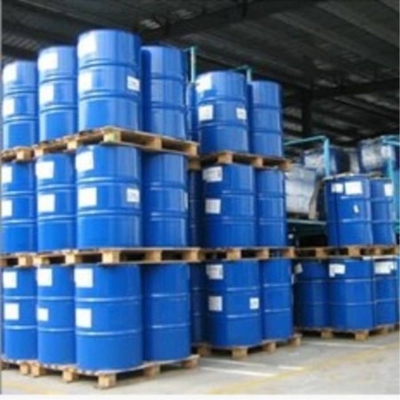The dispute over whether dairy products are "fresh" has finally settled
-
Last Update: 2008-11-03
-
Source: Internet
-
Author: User
Search more information of high quality chemicals, good prices and reliable suppliers, visit
www.echemi.com
Introduction: the word "fresh" has never been used Since November, there has been a great controversy over "ban fresh" and reduced milk in dairy products So, what is the relationship between the prohibition of fresh milk and reducing milk? The reporter made an in-depth investigation "The law of our country has never allowed the use of fresh words in the name of dairy products," Song Kungang, President of China Dairy Industry Association, made a clear statement, "it is not illegal to use milk powder as raw material in the list of ingredients, but the subject is not the problem of enterprise integrity." Experts said that using milk powder and water to reduce liquid milk is not only low cost, but also far inferior to "pasteurized milk" and "ultra-high temperature sterilized milk" with fresh milk as raw material in terms of nutritional composition In fact, in order to prevent "reduced milk" from passing off as liquid milk with fresh milk as raw material, the state has formulated relevant standards for a long time The national standard gb5408.1-1999 pasteurized milk approved and issued in 1999 and officially implemented on May 1, 2000 clearly stipulates that raw milk can only be used as raw material; in gb5408.2-1999 sterilized milk, the compulsory clause clearly states that "products with reconstituted milk as raw material shall be marked" However, since the implementation of this standard, not only a considerable number of enterprises have not implemented it, but also there is no government supervision The general principles of food labeling issued in 2004 is slightly relaxed, but it still stipulates that the product identification must clearly mark the proprietary name indicating the true attribute of food in a conspicuous position When one or more names have been specified in the national product standard, at least one of them, or the equivalent name, should be used So called equivalent names, such as sterilized milk can be sterilized milk, whole milk powder can be whole milk, etc Enterprises should adapt to various national standards as soon as possible According to the data and relevant situations released by China Dairy Industry Association, the more inadequate the milk source, the higher the cost of milk collection According to relevant experts from the Ministry of agriculture, China's milk source belt is mainly distributed in the internationally recognized mid temperate monsoon climate high-quality dairy belt, which runs across the northeast, northwest and North China Grassland belt, including most provinces in the "Three North" region and Jiaodong Peninsula, where 70% of the country's cows and more than 60% of the country's raw milk are concentrated In the south, due to the lack of natural pastures and the only way to rely on artificial breeding, the milk source is very insufficient In addition to the climate, the milk production of cows in the south is only half of that in the north According to the price of milk collected in major cities in June this year issued by China Dairy Industry Association, the price of milk collected in China is gradually increasing in the South based on Hohhot, Harbin and Shenyang, among which Shenyang is 1.48 yuan / kg, Hohhot is 1.75 yuan / kg, Beijing is 1.81 yuan / kg, Cangzhou is 1.97 yuan / kg, Jinan is 2.1 yuan / kg, Nanchang is 2.35 yuan / kg, and Guangzhou is the highest, It's 2.78 yuan / kg, almost double that of Shenyang Experts pointed out that the enterprise provides millions of dairy farmers with the opportunity to get rich It is a thankless thing to put ready-made fresh milk instead of using imported milk powder to produce reduced milk At the second meeting of the technical committee of China Dairy Industry Association held recently, people of insight in the dairy industry unanimously called for enterprises to adapt to various national norms as soon as possible, operate in good faith and strengthen self-discipline in the face of the "fresh ban order" It's more fair not to compete with the word "fresh" Recently, the reporter interviewed some customers who bought milk at random in Beijing Most of them think that consumers have the right to understand consumption Without the word "fresh", consumers will become more mature and enterprises will be more constrained by integrity At the second meeting of Technical Committee of China Dairy Industry Association in 2004, many leaders from leading dairy enterprises in China said, "it's no longer meaningful to play the word" fresh "again Consumers and markets are growing Enterprises should also be more mature Without the word, consumers won't be misled The starting point is the same, This is more conducive to fair competition " Hao Yu, secretary-general of the National Food Industry Standardization Technical Committee, pointed out that "never call pasteurized milk or normal temperature milk fresh milk because it uses fresh milk as raw material" In fact, according to the new general principles of food labeling, enterprises can indicate in the ingredient list that the raw material is "fresh milk", and the product name cannot be called fresh milk, but it can be indicated in the ingredient list The reporter learned from AQSIQ that from next year, AQSIQ will undertake the food hygiene supervision work which is now in the charge of the health department, and take full responsibility for the supervision of food production and processing The supervision of reduced milk is one of the important links Next year, AQSIQ will organize quality inspection to investigate and punish this illegal act of cheating consumers On May 9, 2004, the AQSIQ and the Standardization Administration of the people's Republic of China took the lead in issuing two food labeling standards, general principles for the labeling of prepackaged food and general principles for the labeling of prepackaged special food, To replace the current 1994 version of the general standard for food labeling and 1992 version of the national standard for special nutrition food labeling The general principles will be officially implemented on October 1 next year, and the national standard implementation guide for food labeling will be published with it "Guide" clearly points out that there is no "fresh" in processed food, so the label of heated food is prohibited to use the word "fresh" in order to prevent enterprises from using the label for commercial speculation According to the guide, the standard term of fresh milk should be raw milk, which is called raw milk in the international standard, that is, the milk just squeezed from the cow can be called fresh milk Therefore, the standard is also referred to as the "fresh ban order" by the industry According to this standard, "fresh" foods such as "fresh milk" and "more fresh orange" currently occupy the shelves of supermarkets will be banned after October 1 next year.
This article is an English version of an article which is originally in the Chinese language on echemi.com and is provided for information purposes only.
This website makes no representation or warranty of any kind, either expressed or implied, as to the accuracy, completeness ownership or reliability of
the article or any translations thereof. If you have any concerns or complaints relating to the article, please send an email, providing a detailed
description of the concern or complaint, to
service@echemi.com. A staff member will contact you within 5 working days. Once verified, infringing content
will be removed immediately.







